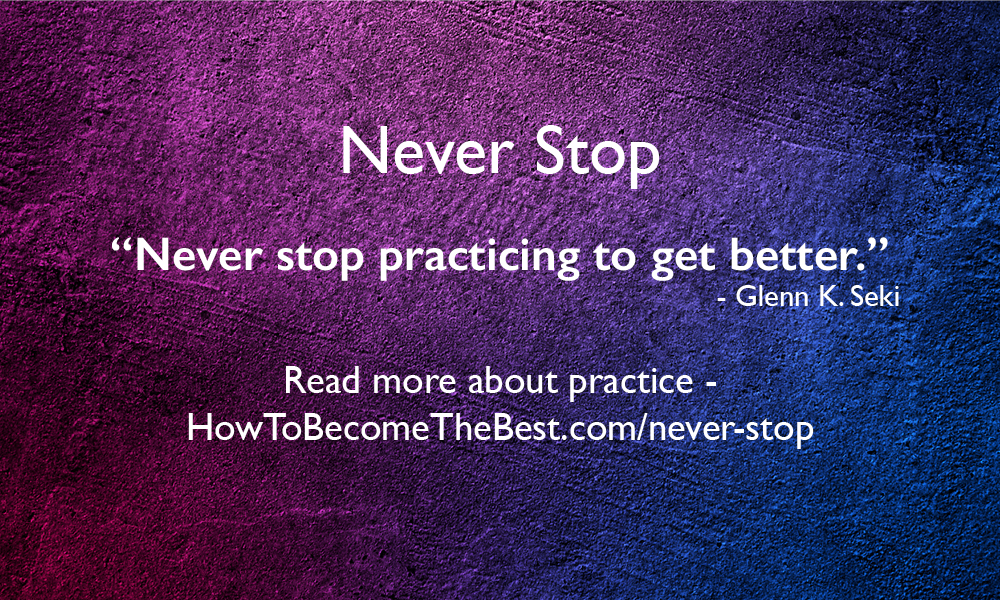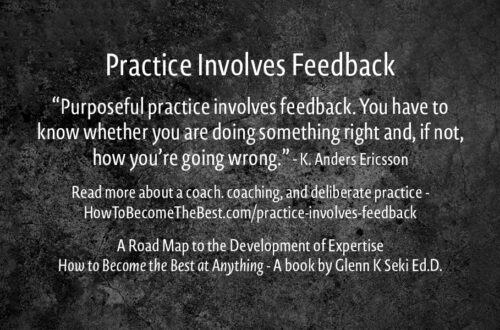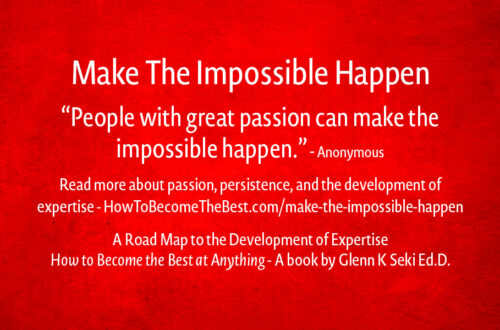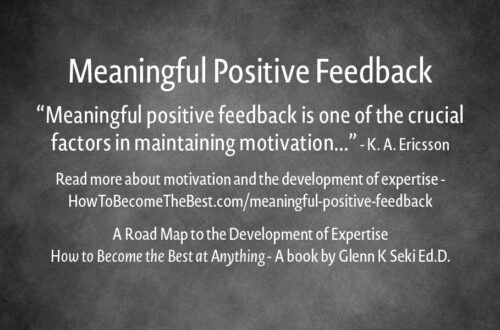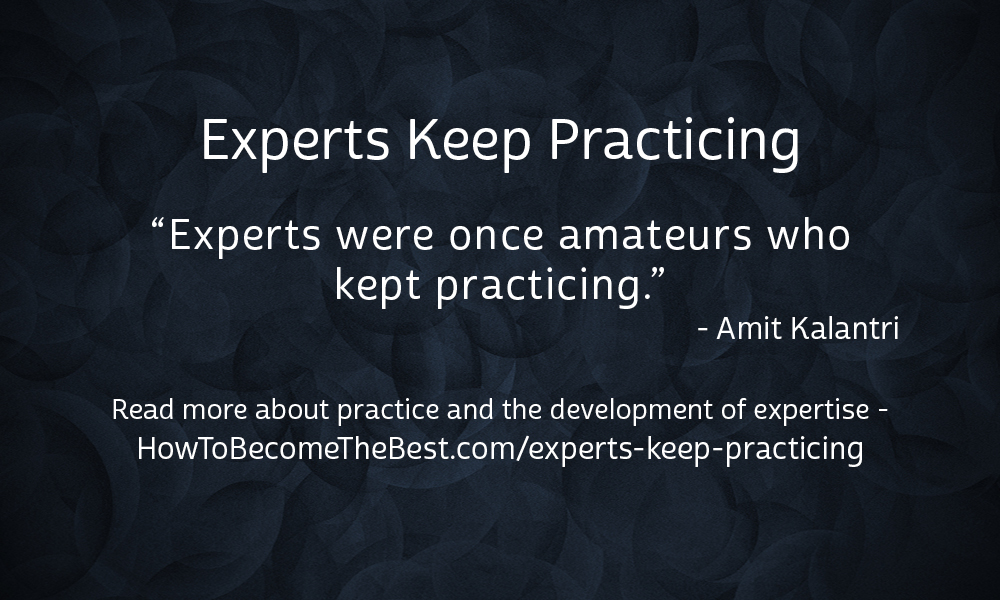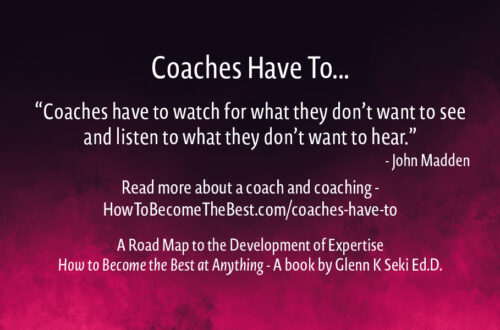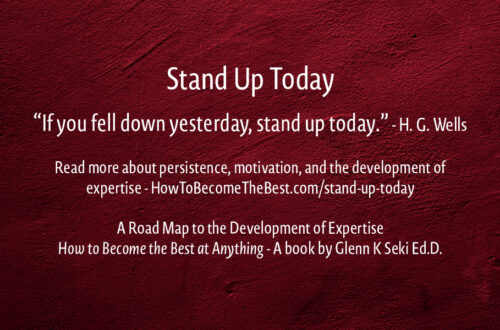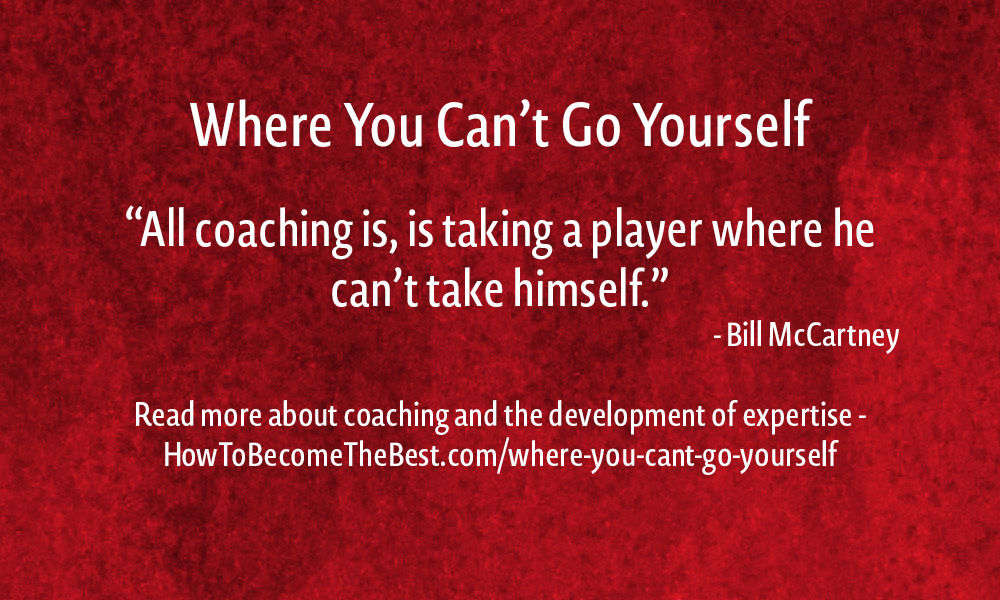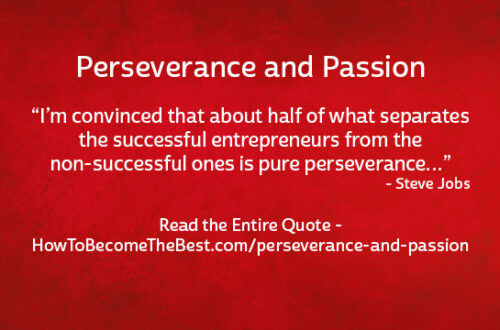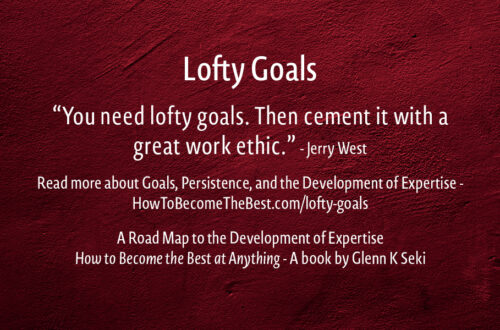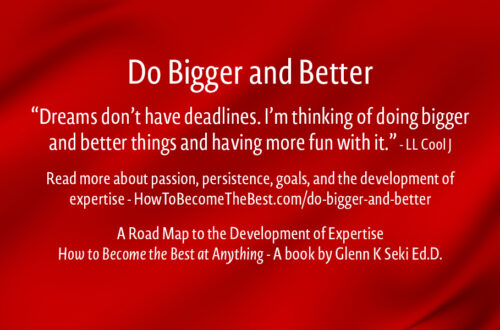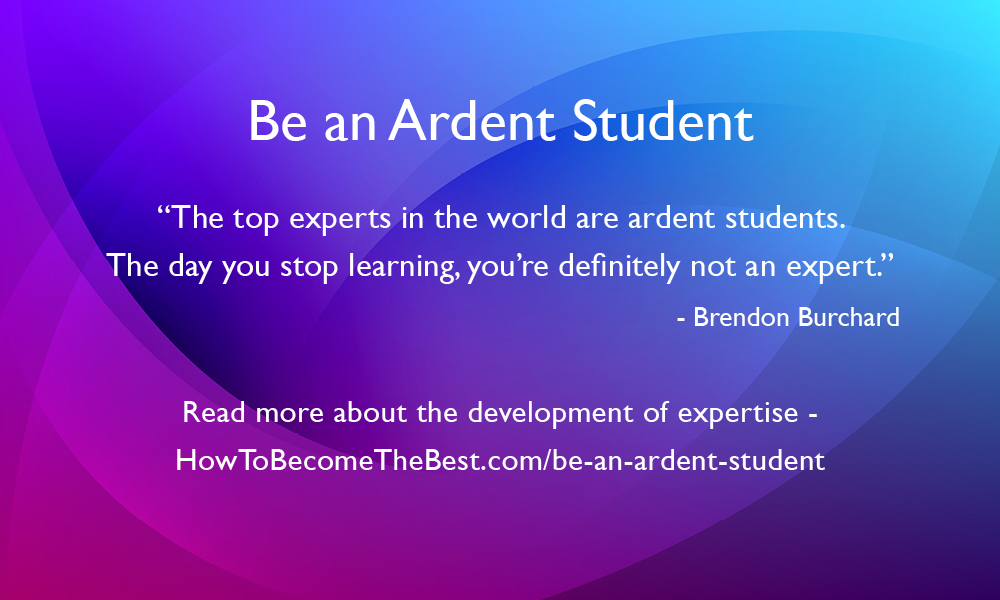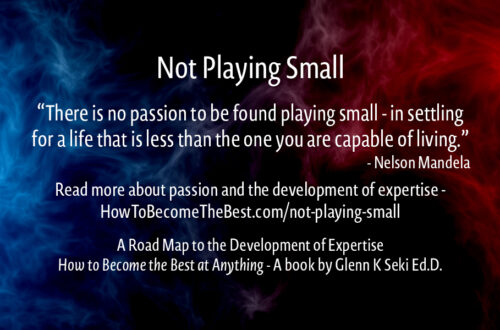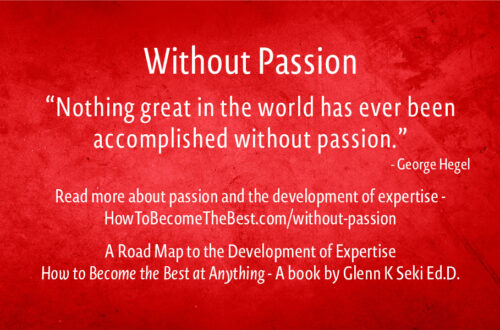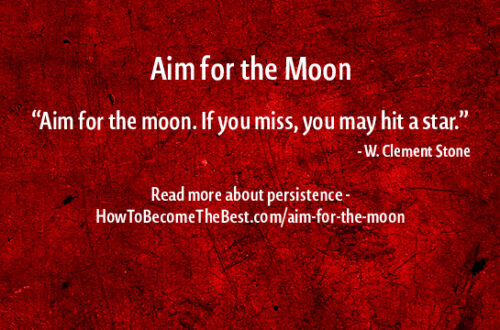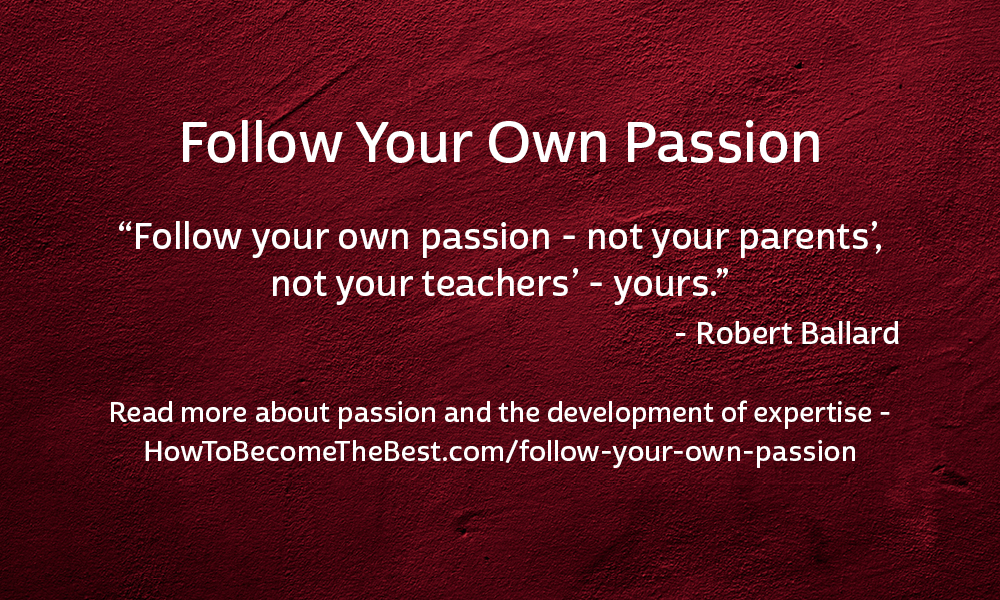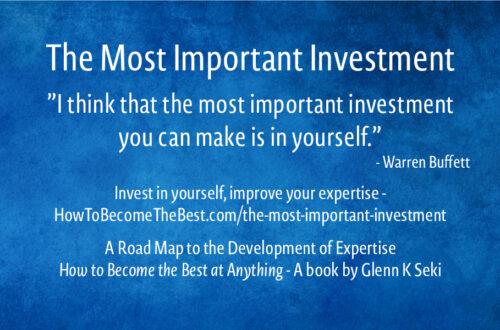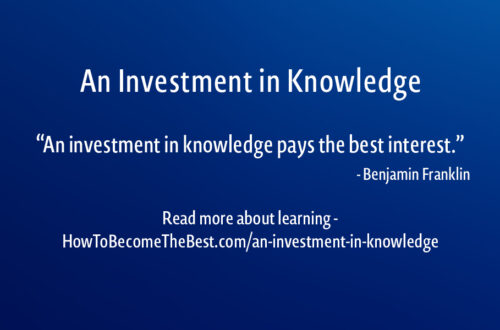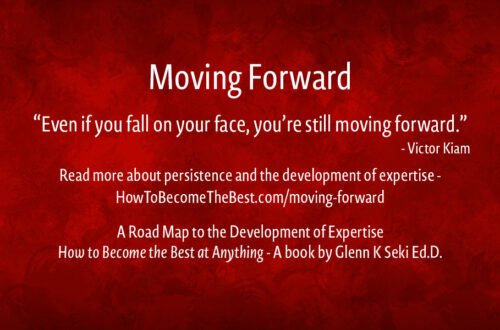“Never stop practicing to get better.” – Glenn K. Seki *** An excerpt from How To Become The Best at Anything, Chapter 8, Deliberate Practice and Learning This is the goal of performing deliberate practice, the 10,000 hours, to automate procedures and classifications. To get there you need the concepts, processes, principles, and productions. Remember, you must automate the productions correctly. If you automate them incorrectly it will take a lot of work and time to un-automated it. How do you practice? What do you practice? That depends on what domain and what production you are trying to automate. This is another reason why you need a coach. Your coach…
-
-
Experts Keep Practicing
“Experts were once amateurs who kept practicing.” – Amit Kalantri *** An excerpt from How To Become The Best at Anything, Chapter 8, Deliberate Practice and Learning “To become the best takes practice, lots and lots of practice. I have mentioned the 10,000-hour rule. It takes about 10,000 hours of practice to get really good at something and not just any type of practice, but deliberate practice. Deliberate practice is practicing to get better. The classic example is a man who has gone golfing almost every weekend for the past twenty years. He has a great interest in the sport and has fun with it. He reaches a certain level…
-
Where You Can’t Go Yourself
“All coaching is, is taking a player where he can’t take himself.” – Bill McCartney *** An excerpt from How To Become The Best at Anything, Chapter 7, A Coach and Coaching “You really need to have a coach/mentor/teacher/etc. A coach can be a parent, relative, friend, teacher, someone you hire, etc. Tiger Wood’s father introduced him to golf, Venus and Serena Williams’ father introduced them to tennis and coached them in their early years. You can have multiple coaches concurrently and consecutively. Your coaches should have a higher expertise level than you do, although they don’t have to. A friend may help motivate you to keep practicing when you…
-
Be an Ardent Student
“The top experts in the world are ardent students. The day you stop learning, you’re definitely not an expert.” – Brendon Burchard *** An excerpt from How To Become The Best at Anything, Chapter 8, Deliberate Practice and Learning Learning “When you are trying to learn something new or you are teaching someone something new, it can be a very daunting task. It is difficult because learning something new is not easy, but it can be made easier if you understand how learning works. Learning can be divided into four basic parts: concepts (definitions and examples), processes (how it works sequences), principles (cause and effect relationships), and productions (procedures/classifications).” ***…
-
Follow Your Own Passion
“Follow your own passion – not your parents’, not your teachers’ – yours.” – Robert Ballard *** An excerpt from How To Become The Best at Anything, Chapter 1, Passion and Interest “What is your passion? What are you passionate about? Are you passionate about a sport, say basketball, or surfing? Tennis anyone? How about art, or music. Perhaps you’re zeroed in on an academic field such as biology, or economics. Maybe you have a passion for exploring, with an eye on the Himalayas. Don’t have a passion, then what are you interested in? Interest and achievement go hand in hand. It is easier to achieve in a domain if…
